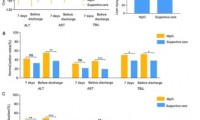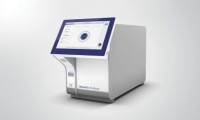-
Alexion’s Voydeya gains FDA approval for extravascular haemolysis
- Source: drugdu
- 323
- April 4, 2024
-
Ipsen joins the ADC club with deal worth up to $900m
- Source: drugdu
- 351
- April 4, 2024
-
First Patient Dosed in Clinical Trial of YOLT-101 for the Treatment of FH
- Source: drugdu
- 397
- April 4, 2024
-
YolTech Therapeutics to Participate in 2024 Cell & Gene Meeting on the Mediterranean
- Source: drugdu
- 358
- April 4, 2024
-
CanSinoBio Invited to Boao Forum for Asia 2024 Annual Conference
- Source: drugdu
- 427
- April 4, 2024
-
Latest Research Results of Magnesium Isoglycyrrhizinate GM-DILI-002 Announced
- Source: drugdu
- 864
- April 4, 2024
-
Researchers Present First Study Using Biomimetic AI Digital Twins
- Source: drugdu
- 515
- April 3, 2024
-
Gilead, Xilio Therapeutics Ink Exclusive Licensing Agreement to Develop Early Phase Tumor-Activated IL-12
- Source: drugdu
- 328
- April 3, 2024
-
Upgraded Syndromic Testing Analyzer Enables Remote Test Results Access
- Source: drugdu
- 357
- April 3, 2024
-
Single Genetic Test to Accelerate Diagnoses for Rare Developmental Disorders
- Source: drugdu
- 416
- April 3, 2024
your submission has already been received.
OK
Subscribe
Please enter a valid Email address!
Submit
The most relevant industry news & insight will be sent to you every two weeks.












